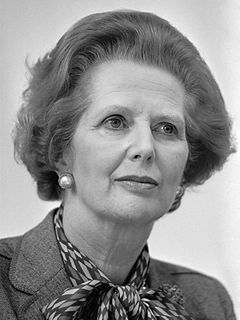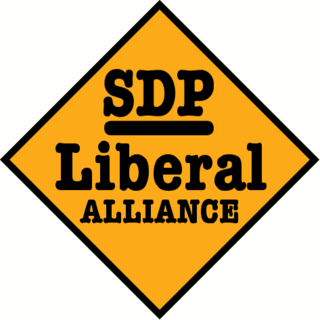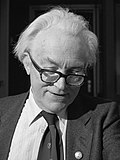
The United Kingdom is a unitary state with devolution that is governed within the framework of a parliamentary democracy under a constitutional monarchy in which the monarch, currently Queen Elizabeth II, is the head of state while the Prime Minister of the United Kingdom, currently Boris Johnson, is the head of government. Executive power is exercised by the British government, on behalf of and by the consent of the monarch, and the devolved governments of Scotland, Wales and Northern Ireland. Legislative power is vested in the two chambers of the Parliament of the United Kingdom, the House of Commons and the House of Lords, as well as in the Scottish and Welsh parliaments. The British political system is a two party system. Since the 1920s, the two dominant parties have been the Conservative Party and the Labour Party. Before the Labour Party rose in British politics, the Liberal Party was the other major political party, along with the Conservatives. While coalition and minority governments have been an occasional feature of parliamentary politics, the first-past-the-post electoral system used for general elections tends to maintain the dominance of these two parties, though each has in the past century relied upon a third party, such as the Liberal Democrats, to deliver a working majority in Parliament. A Conservative–Liberal Democrat coalition government held office from 2010 until 2015, the first coalition since 1945. The coalition ended following parliamentary elections on 7 May 2015, in which the Conservative Party won an outright majority of seats, 330 of the 650 seats in the House of Commons, while their coalition partners lost all but eight seats.

The 1983 United Kingdom general election was held on Thursday 9 June 1983. It gave the Conservative Party under the leadership of Margaret Thatcher the most decisive election victory since that of the Labour Party in 1945, with a majority of 144 seats.

The 1987 United Kingdom general election was held on Thursday, 11 June 1987, to elect 650 members to the House of Commons of the United Kingdom. The election was the third consecutive general election victory for the Conservative Party, and second landslide under the leadership of Margaret Thatcher, who became the first Prime Minister since the Earl of Liverpool in 1820 to lead a party into three successive electoral victories.

The SDP–Liberal Alliance was a centrist and social liberal political and electoral alliance in the United Kingdom.

The 2005 United Kingdom general election was held on Thursday 5 May 2005, to elect 646 members to the House of Commons. The Labour Party, led by Tony Blair, won its third consecutive victory, with Blair becoming the second Labour leader after Harold Wilson to form three majority governments. However, its majority fell to 66 seats compared to the 167-seat majority it had won four years before. This was the first time the Labour Party had won a third consecutive election, and remains the party's most recent general election victory.

The Liberal Democrats are a liberal political party in the United Kingdom. The party has 13 Members of Parliament in the House of Commons, 84 members of the House of Lords, four Members of the Scottish Parliament, one member in the Welsh Senedd and two members in the London Assembly. The party served as the junior party in a coalition government with the Conservative Party between 2010–2015, with Scottish Labour in the Scottish Executive from 1999 to 2007, and with Welsh Labour in the Welsh Government between 2000 to 2003 and between 2016 to 2021.

Charles Peter Kennedy was a British Liberal Democrat politician who was Leader of the Liberal Democrats from 1999 to 2006, and a Member of Parliament (MP) from 1983 to 2015.

The 2014 European Parliament election was the United Kingdom's component of the 2014 European Parliament election, held on Thursday 22 May 2014, coinciding with the 2014 local elections in England and Northern Ireland. In total, 73 Members of the European Parliament were elected from the United Kingdom using proportional representation. England, Scotland and Wales use a closed-list party list system of PR, while Northern Ireland used the single transferable vote (STV).

The Social Democratic Party (SDP) was a centrist to centre-left political party in the United Kingdom. The party supported a mixed economy, electoral reform, European integration and a decentralised state while rejecting the possibility of trade unions being overly influential within the industrial sphere. The SDP officially advocated "social democracy", but its actual propensity is evaluated as close to social liberalism.

The 2015 United Kingdom general election in England was held on Thursday, 7 May 2015 for 533 English seats to the House of Commons. The Conservatives won a majority of seats in England for the second time since 1992.

The 2019 United Kingdom general election was held on Thursday, 12 December 2019. It resulted in the Conservative Party receiving a landslide majority of 80 seats. The Conservatives made a net gain of 48 seats and won 43.6% of the popular vote – the highest percentage for any party since 1979.

These are the results of the 1983 United Kingdom general election in Scotland. The election was held on Thursday 9 June 1983 and all 72 seats in Scotland were contested.














